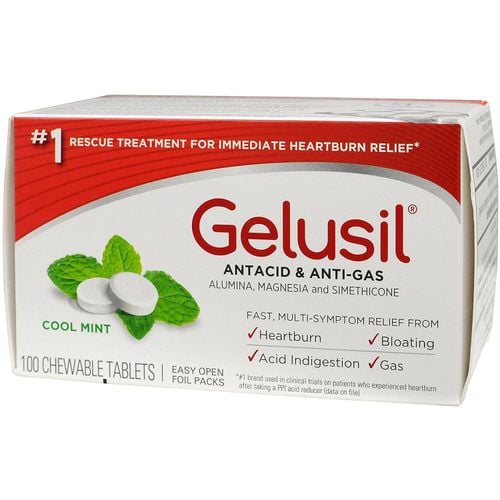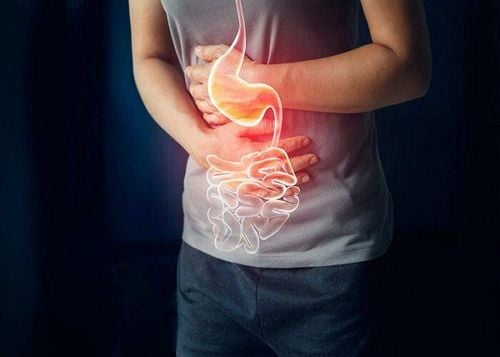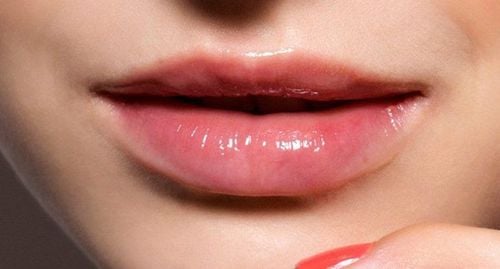This is an automatically translated article.
Peppermint tea can benefit the body's health in many ways. While research on peppermint tea is limited, some studies have also shown the benefits of peppermint and peppermint oil extracts such as antibacterial, improved digestion, improved headache, and more. Peppermint tea is a natural beverage that does not contain caffeine and is very safe to consume at any time of the day.
1.What is the use of mint? Peppermint (Mentha × piperita) is an aromatic herb in the mint family, which is a cross between spearmint and spearmint. Mint is native to Europe and Asia and has been used for thousands of years for its pleasant taste and health benefits.
Mint is used as a flavoring in mints, candies and other foods. Additionally, many people consume mint as a fresh, caffeine-free tea.
Peppermint leaves contain several essential oils including menthol, menthol and limonene. Menthone gives mints its cooling properties and recognizable mint scent. While some people drink mint tea because of its taste, this tea has a number of physical health benefits. The tea itself is rarely studied scientifically, but mint extract has. So what are the benefits of drinking mint tea? Here are 12 scientific benefits of peppermint tea and its extracts.
2. Benefits of drinking mint tea
2.1. Easily Digested Peppermint can relieve digestive symptoms, such as gas, bloating, and indigestion. Animal studies have shown that peppermint relaxes the digestive system, and can also help relieve pain. What's more, they work by stopping smooth muscles from contracting, which can reduce spasms in the intestines.
A review of 9 studies in 926 people with irritable bowel syndrome (IBS) who were treated with peppermint oil for at least two weeks concluded that the peppermint group provided significantly better symptom relief. compared with the placebo group.

Trà bạc hà có thể dễ dàng tiêu hóa, có ích với bệnh nhân mắc bệnh lý đường tiêu hóa
In a study conducted in 72 people with IBS, oil capsules resulted in a 40% reduction in IBS symptoms after four weeks, compared with only 24.3% using a placebo. Additionally, a review of 14 clinical trials in nearly 2,000 children who used peppermint found that peppermint reduced the frequency, duration, and severity of abdominal pain. Furthermore, peppermint oil capsules reduced the incidence and severity of nausea and vomiting in a study conducted in 200 people undergoing chemotherapy for cancer. Although no studies have examined peppermint tea and digestion, it is possible that this tea has similar effects.
2.2. May Help Relieve Tension Headaches and Migraines Because peppermint acts as a muscle relaxant and pain reliever, mint may relieve some headache symptoms. Not only that, the menthol in peppermint oil increases blood flow and provides a cooling sensation, which can reduce pain.
In a randomized clinical study conducted in 35 people with migraines, peppermint oil applied to the forehead and temples significantly reduced pain after two hours, compared with a placebo oil. Another study in 41 people found that 1,000 mg of acetaminophen applied to the forehead was effective for headaches.
Although, the aroma of peppermint tea may help relax muscles and improve headaches, but there is no supporting scientific evidence to confirm this effect. However, applying peppermint oil to the temples can help.
2.3. Can freshen breath There's a reason why mint is a popular flavoring for toothpastes, mouthwashes, and chewing gum. Because, in addition to the pleasant scent, mint also has antibacterial properties that help kill the germs that cause dental plaque and can improve breath.
In one study, people who had undergone spinal surgery and had their mouths rinsed with a mixture of peppermint, tea tree, and lemon balm had improved symptoms of bad breath, compared with those who did not use the mixture. this case. Or in another study, female schoolgirls who were rinsed with mint showed an improvement in their breathing after one week, compared with a control group. Although there is no evidence from scientific studies that drinking peppermint tea every day has the same effect, compounds in mint have been shown to improve breathing.

Trà bạc hà giúp làm mới hơi thở ở người mắc chứng hôi miệng
2.4. May Relieve Congested Sinuses Mint has antibacterial, antiviral, and anti-inflammatory properties. Because of this, peppermint tea can combat clogged sinus symptoms caused by infections, the common cold, and allergies.
In addition, research proves that menthol improves the perception of airflow in the nasal cavity. As a result, the steam from peppermint tea can help the body feel as though it's easier to breathe. Although peppermint tea has not been studied for its effects on nasal congestion, evidence suggests it may be helpful.
2.5. May improve energy Peppermint tea can improve energy levels and reduce daytime fatigue. Although there are no studies on peppermint tea, research demonstrates that natural compounds in mint can have beneficial effects on energy.
In a study conducted in 24 healthy young people who conducted cognitive tests when using peppermint oil capsules, the results showed that they felt less tired. Or in another study, peppermint oil aromatherapy was found to reduce the incidence of daytime sleepiness.
2.6. May Help Relieve Menstrual Cramps Because peppermint acts as a muscle relaxant, it may reduce menstrual cramps. While peppermint tea hasn't been studied for that effect, compounds in mint have been shown to improve symptoms.
In a study done in 127 women with period pain who used peppermint extract capsules and the results showed that peppermint was as effective as a non-steroidal anti-inflammatory drug in reducing intensity and duration. pain. It's possible that peppermint tea could have a similar effect.

Phụ nữ đau bụng kinh có thể sử dụng trà bạc hà giúp giảm đau
2.7. May Fight Bacterial Infections Although there are no studies on the antibacterial effects of peppermint tea, peppermint oil has been shown to effectively kill bacteria.
In one study, peppermint oil was found to kill and prevent the growth of common food-borne bacteria including E. coli, Listeria and Salmonella in pineapple and mango juices. Additionally, peppermint oil kills several types of bacteria that lead to illness in humans including Staphylococcus and bacteria associated with pneumonia. Furthermore, studies have also shown that peppermint reduces certain types of bacteria commonly found in the mouth, and menthol has also demonstrated antibacterial activity.
2.8. May improve sleep Peppermint tea is an ideal choice before bed, as its ingredients are naturally caffeine-free. Furthermore, peppermint's ability to be a muscle relaxant can help the body relax before bed.
In one study, peppermint oil was able to prolong the sleep time of rats given sedation. However, another study found that menthol had no sedative effects.
2.9. Possible Weight Loss Peppermint tea is naturally calorie-free and has a pleasantly sweet taste, which makes it a smart choice when you're trying to lose weight. However, there isn't much research on the effects of peppermint tea on weight.
In a small study in 13 healthy people, it was found that taking a peppermint oil capsule led to a greater decrease in appetite compared to not taking peppermint. On the other hand, an animal study also showed that rats given peppermint extract gained more weight than a control group. Therefore, more research is needed to understand the relationship between mint and weight loss.
2.10. May Improve Seasonal Allergies Mint contains rosmarinic acid which is a plant compound found in rosemary and plants in the mint family. Rosmarinic acid has been linked to a reduction in allergy symptoms, such as runny nose, itchy eyes, and asthma.

Trà bạc hà có thể giúp cải thiện dị ứng theo mùa như sổ mũi
In a randomized 21-day study in 29 people with seasonal allergies, those who received an oral supplement containing rosmarinic acid had fewer symptoms of itchy nose, itchy eyes, and other symptoms. compared with those taking a placebo.
Although it is not known whether the amount of rosmarinic acid present in mint is sufficient to affect allergy symptoms, there is some evidence that mint may reduce allergies. In a study done on rats, peppermint extract reduced allergy symptoms, such as sneezing and itchy nose.
2.11. May improve concentration Drinking peppermint tea can help improve concentration. Although studies on the effects of peppermint tea on concentration are limited, two small studies were conducted that showed the beneficial effects of peppermint oil were taken by mouth or by inhalation. .
In a study that examined 24 young, healthy people, they performed significantly better on cognitive tests when they were given peppermint oil capsules. Or in another study, the smell of menthol was found to improve memory and alertness, compared to ylang-ylang, another popular essential oil.
2.12. Easy to Add to the Diet Peppermint tea is delicious and easy to add to the diet. You can buy it in tea bags. To make mint tea you can do:
Boil 2 cups of water. Turn off the heat and add a handful of shredded mint leaves to the water. Cover and soak for 5 minutes. Strain the tea and drink. Since peppermint tea is naturally caffeine-free, you can drink it at any time of the day. Enjoy the tea as a therapeutic dose after a meal to aid digestion, or in the afternoon to boost your body's energy or before bed to help your body relax.

Uống trà đúng cách giúp bạn thư giãn và đem lại những lợi ích cho cơ thể
Vinmec International General Hospital is a high-quality medical facility in Vietnam with a team of highly qualified medical professionals, well-trained, domestic and foreign, and experienced.
A system of modern and advanced medical equipment, possessing many of the best machines in the world, helping to detect many difficult and dangerous diseases in a short time, supporting the diagnosis and treatment of doctors the most effective. The hospital space is designed according to 5-star hotel standards, giving patients comfort, friendliness and peace of mind.
Please dial HOTLINE for more information or register for an appointment HERE. Download MyVinmec app to make appointments faster and to manage your bookings easily.
Reference source: healthline.com













